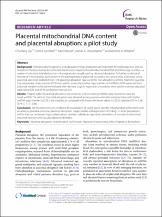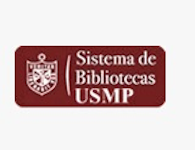Placental mitochondrial DNA content and placental abruption: a pilot study

View/
Download
(application/pdf: 754.9Kb)
(application/pdf: 754.9Kb)
Date
2015-09-16Author(s)
Qiu, Chunfang
Sanchez, Sixto E.
Hevner, Karin
Enquobahrie, Daniel A.
Williams, Michelle A.
Metadata
Show full item recordAbstract
Background
Mitochondrial biogenesis and adequate energy production are important for embryogenesis and placentation. Previous studies documented alterations in maternal blood mitochondrial DNA (mtDNA) copy number—a marker of mitochondrial dysfunction—in pregnancies complicated by placental abruption. To further understand the role of mitochondrial dysfunction in the pathogenesis of placental abruption, we conducted a pilot study using placental specimen collected from 103 placental abruption cases and 102 non-abruption controls. Real-time quantitative polymerase chain reaction (PCR) was used to assess the relative copy number of mtDNA in DNA extracted from placental samples collected immediately after delivery. Logistic regression procedures were used to estimate adjusted odds ratios (OR) and 95 % confidence intervals (CI).
Results
Higher odds of placental abruption was observed with increasing mtDNA copy number (p value for trend = 0.05). The odds of placental abruption was elevated among women who delivered placentas with higher mtDNA copy number (≥120.5, the median) as compared with those with lower values (<120.5) (adjusted OR = 2.38; 95 % CI 1.11–5.08).
Conclusion
We found preliminary evidence for associations of target tissue-specific mitochondrial dysfunction with an adverse perinatal outcome, placental abruption. Larger studies and replication of findings in other populations will further our understanding of relationships between cellular and genomic biomarkers of normal and abnormal placental function and vascular placental disorders.
Collections
- Artículos [274]







